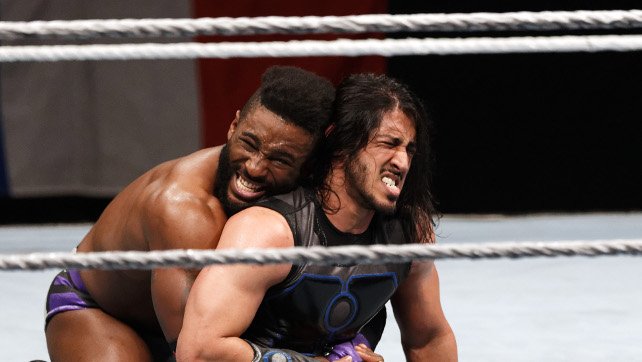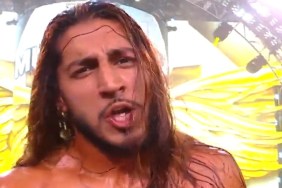SmackDown Live Superstar Mustafa Ali was this week’s guest on the Talk Is Jericho podcast. The WWE Superstar opened up about life as a Muslim in post 9/11 America, being pigeon holed as an anti-American character and much more. Highlights appear below.
(Transcription Credit: Michael McClead, WrestleZone)
On Being Pigeonholed As An Anti-American Character:
It kind of shows you how screwed up society is. When I started wrestling, I was 16. I was young. I love wrestling. I want to entertain people, all this stuff. I go and get trained and when they decide I’m ready for a match and have to start thinking about a character, I was thinking like this guy and this guy. They go, ‘No, no, no, you’re a Muslim. You’ve got to be a bad guy.’ ‘What do you mean I have to be a bad guy?’ ‘We’re gonna call you Sheikh Abdullah something something and you’re gonna come out with a vest that looks like you have a bomb on and you’re gonna threaten this, you’re gonna drag the American flag.’ I was terrified, not terrified in the sense that someone was gonna hurt me, terrified in the sense that, ‘No, I don’t want to do that.’
On Life After 9/11 & How That Affected His Beginnings In Wrestling:
I was in high school after 9/11 happened. I didn’t get bullied. I didn’t get treated differently, but I definitely felt people looked at me differently. When 9/11 happened, it affected everything. It affected me. I’m an American and I’m like, ‘Oh my God, this is evil. This is terrible.’ We would have these classroom discussions and people were encouraged to talk freely and I always remember that kids were like kids.
My friends were like, ‘We’ve got to go overseas and we’ve got to kill all of them. Kill all the Muslims!’ I’m sitting right next to them and I’m like, ‘Holy,’ and I didn’t get mad at them because I could understand their mindset. They’re tuning into the TV and all they’re seeing is anyone that has a Muslim name that looks like a Muslim presented as evil, so they’re going to associate that with bad or evil. I was like, ‘I don’t want to push that agenda or be part of that, so I refused to do that type of character.’ I was like, ‘I love high flying. I love lucha libre. Can I just put on a mask and pass myself off as a luchador?’ That’s what I did for the first 4 or 5 years. I put on a mask and pretended to be this luchador and obviously the wrestling was fine, but there was no connection to the crowd. I was just a guy doing moves. There was no real personality behind me. There was no connection.
On Post 9/11 Prejudice:
I felt like I had to explain myself a lot. I was 16. I just want to go out and date a girl and go to the movies. I’m a normal 16 year old kid from Chicago, but I found myself having to defend myself, ‘Oh no, no, no, no my family’s not like that. Oh no, no, no, no, that’s not how it really is.’ I don’t know why I took it upon myself because I could have just been quiet and again no one was targeting me, no one was picking on me. I didn’t get targeted in high school for being a Muslim; it wasn’t that, but I always felt like an outsider, in that sense. It was passed off as, ‘We are American.’ ‘I’m an American too. What do you mean?’
A part of me, as much as it sucked, I was kind of happy that people spoke so openly in front of me – even if it was offensive. I’m glad they did because it made me realize that perception and influence is a real thing, even at this age. We are so easily influenced as a society, as human beings. If I constantly tell you that something’s bad and I keep showing you that something’s bad and it’s all one-sided, you’re gonna have….my voice in your head, ‘Ali told me about this guy being bad, so I’m gonna be a little cautious.’ Again, my house didn’t get egged or burglarized, but people around me did. The mosque I went to got vandalized. I heard about kids getting beat up, so all of this stuff is happening. It didn’t happen directly to me, but I’m very self conscious and aware of it, so that’s carried over to today. I’m very specific about how I present myself to people.
DJZ On Entering The Free Agency Market, Facing Mustafa Ali, Proving He Can Hang With The World’s Best (Exclusive)
How The Mustafa Ali Name Came About:
Eventually I got talked into – the decision was myself – it was a low point for me. I caved into the pressure and was like, ‘I’ll do the evil foreigner character and I’ll just try it.’ ‘We want you to be a prince from Saudi Arabia. Come up with a name.’ I was like, ‘Prince, prince. Prince Ali. People know that from Aladdin. I’m a big fan of Muhammad Ali. I can’t be Muhammad Ali. I’m looking up royal – Mustafa. Mustafa’s a royal name. Prince Mustafa, OK fine.’ Prince Mustafa Ali came from that and it’s an easier name for people to remember too: Prince Ali. If you can’t remember Mustafa, at least you’ll remember Prince Ali.
More On The ‘Evil Foreigner’ Character:
It was a hit. I’m from the Chicago indie scene and instantly I come back and I’m getting bookings, I’m getting flown out, I’m cutting these terrible promos, anti-America this, anti-America that, and it was so easy, so easy. It came to a point where I was like, ‘This is a joke. I can literally go out there and speak a different language and make it up and not even make sense and they’re gonna boo me out the building,’ and that’s what happened. I had such a strong character, but the work became a second concern of mine. It was just about the promo, what I was gonna wear, and how I could piss people off and I hated every second of it. It feels really weird to say, but I kind of fell out of love with wrestling for awhile.
On What Prompted Him To Stop Doing The Character:
The turning point for me was I was in Oak Forest, Illinois and I remember at some point in the match, the match had spilled outside and there was a young kid and he must have been like 6,7,8 or something like that and as I’m walking by the guard rail, he steps out of his chair and he puts both his fists up like he wants to fight, but out of fear or anger. I remember looking dead into his eyes. He’s this blonde haired, blue-eyed kid and I was like, ‘Holy crap, I just taught this kid to hate me and to hate people that look like me.’ It wasn’t, ‘You’re getting good heat.’ This kid was like, ‘You Muslim scum piece of,’ I saw it in his face. I was like, ‘What am I doing?’ I know this is a small indie show. I know no one’s gonna see this, but that kid is gonna go to high school with another kid that looks like me and I was that kid in high school that had to sit there when everyone stood up and said, ‘We have to go overseas and kill them all.’ I’m pushing that agenda on this young mind and that might be a stretch, but I felt it. I was like, ‘I’m not doing this crap anymore. I’m done with it.’
That was the last time I did it. I was like, ‘I’m just going to go by Mustafa Ali. I’m not saying anything negative about America because I’m from America. I’m gonna make the crowd the heel.’ They were like, ‘How are you gonna do that?’ ‘By not being a heel. I’m just gonna come out and they’re gonna boo me and I’m gonna point that out to them.’ I was like, ‘You guys are literally booing me because of my name and how I look. You’re the heel, not me.’ I ran with that for awhile. It’s just interesting how wrestling reflects society. I lived in that time frame where Muslims or Arabs or Middle Eastern, they were the bad guy, no matter what.
On WWE Initially Pushing Him To Do A Heel Character:
Road Dogg actually pitched the idea because when 205 started, they did want me to be the bad guy. They had the big Pakistani flag on my entrance and obviously, if you put up any flag that’s not the American flag, you’ll get heat. They weren’t gonna push it like, ‘He’s the evil foreigner,’ but they were pushing the anti-American agenda, but very subtly. I was kind of like, ‘I don’t want to do this,’ so they were like, ‘Go ahead and do your introduction promo package. You can say whatever you want.’ I was like, ‘OK, I’m going to use that trick I learned from the indies where I make the crowd the bad guy, not me. So, my first line in WWE ever is, ‘My name is Mustafa Ali and you’ve already made up your mind about me.’
I see the camera guys look at each other and the producer was like, ‘Where are you going with this?’ I was like, ‘This is who I am, man. I’m not wearing some sheet over my head. I’m not speaking in a foreign language. My name is Mustafa Ali and you, YOU already made up your mind about me. What does it say about you?’ Obviously, Road Dogg and all of them see it and I have one match as a bad guy and immediately they turn me into a good guy because they saw this promo. Road Dogg pulls me aside and he’s like, ‘Man, you’re right. Why do we have to make you the bad guy? You have this great move set. We can mold it and make it fit the WWE style, but we’re gonna run with you as a baby and see what happens.’ I was all for it. I fully believed I could do it and here we are 2 years later.
Readers may listen to Talk Is Jericho in its entirety below:
Mustafa Ali Cedric Alexander
-
Mustafa Ali v Cedric Alexander
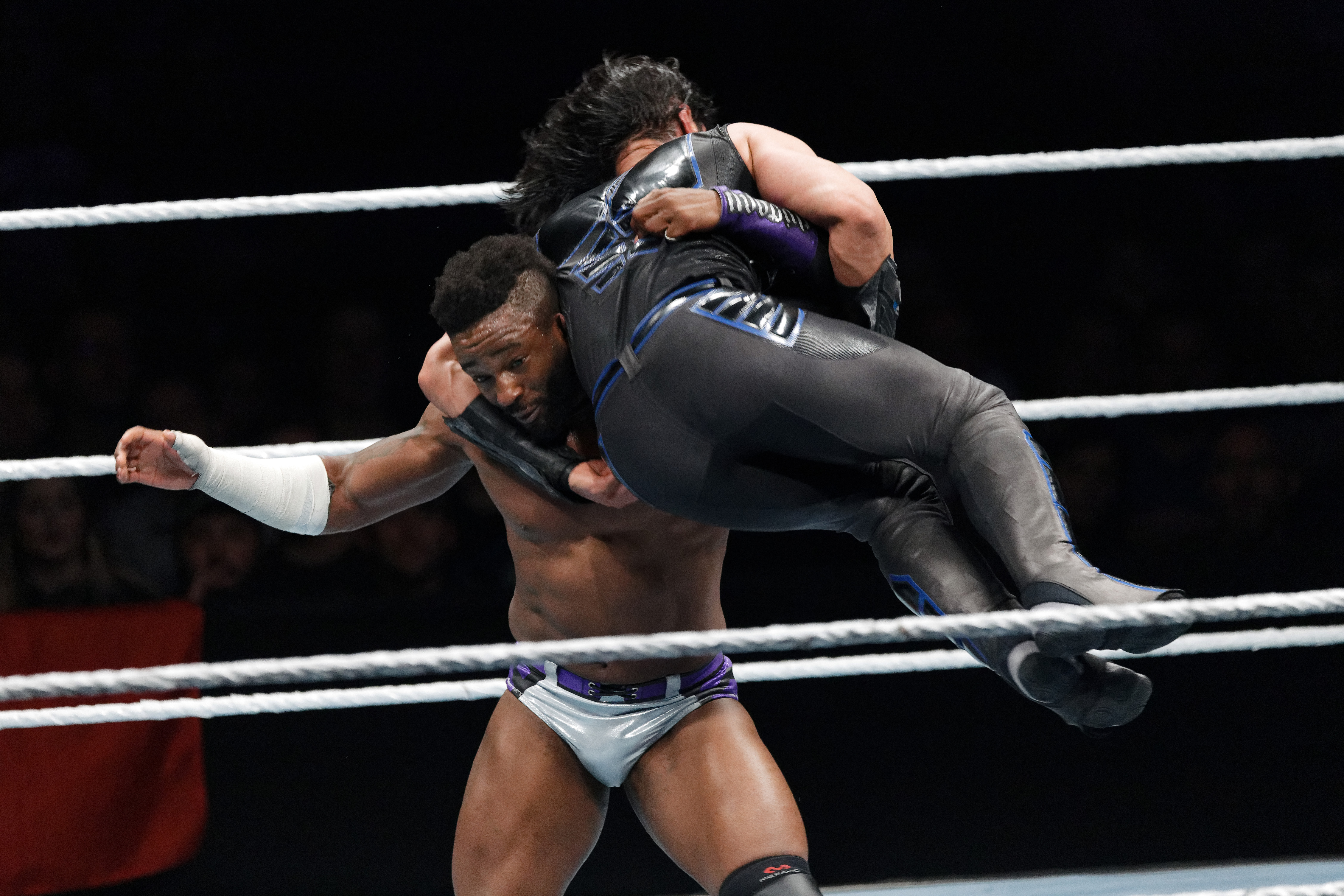
PARIS, FRANCE - MAY 19: Cedric Alexander (L) in action vs Mustafa Ali during WWE Live AccorHotels Arena Popb Paris Bercy on May 19, 2018 in Paris, France. (Photo by Sylvain Lefevre/Getty Images)
-
Mustafa Ali v Cedric Alexander
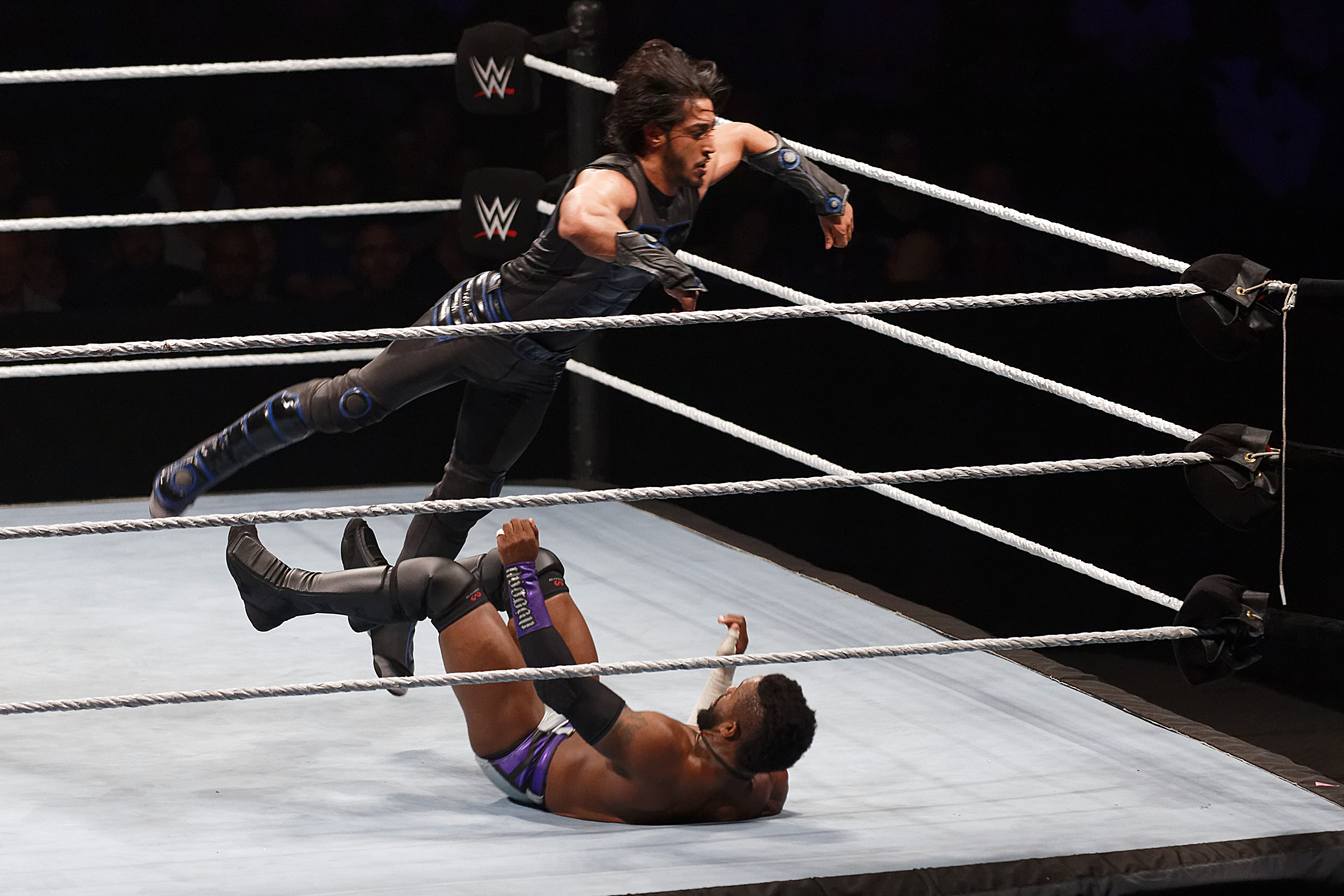
PARIS, FRANCE - MAY 19: Cedric Alexander (under) in action vs Mustafa Ali during WWE Live AccorHotels Arena Popb Paris Bercy on May 19, 2018 in Paris, France. (Photo by Sylvain Lefevre/Getty Images)
-
Mustafa Ali v Cedric Alexander
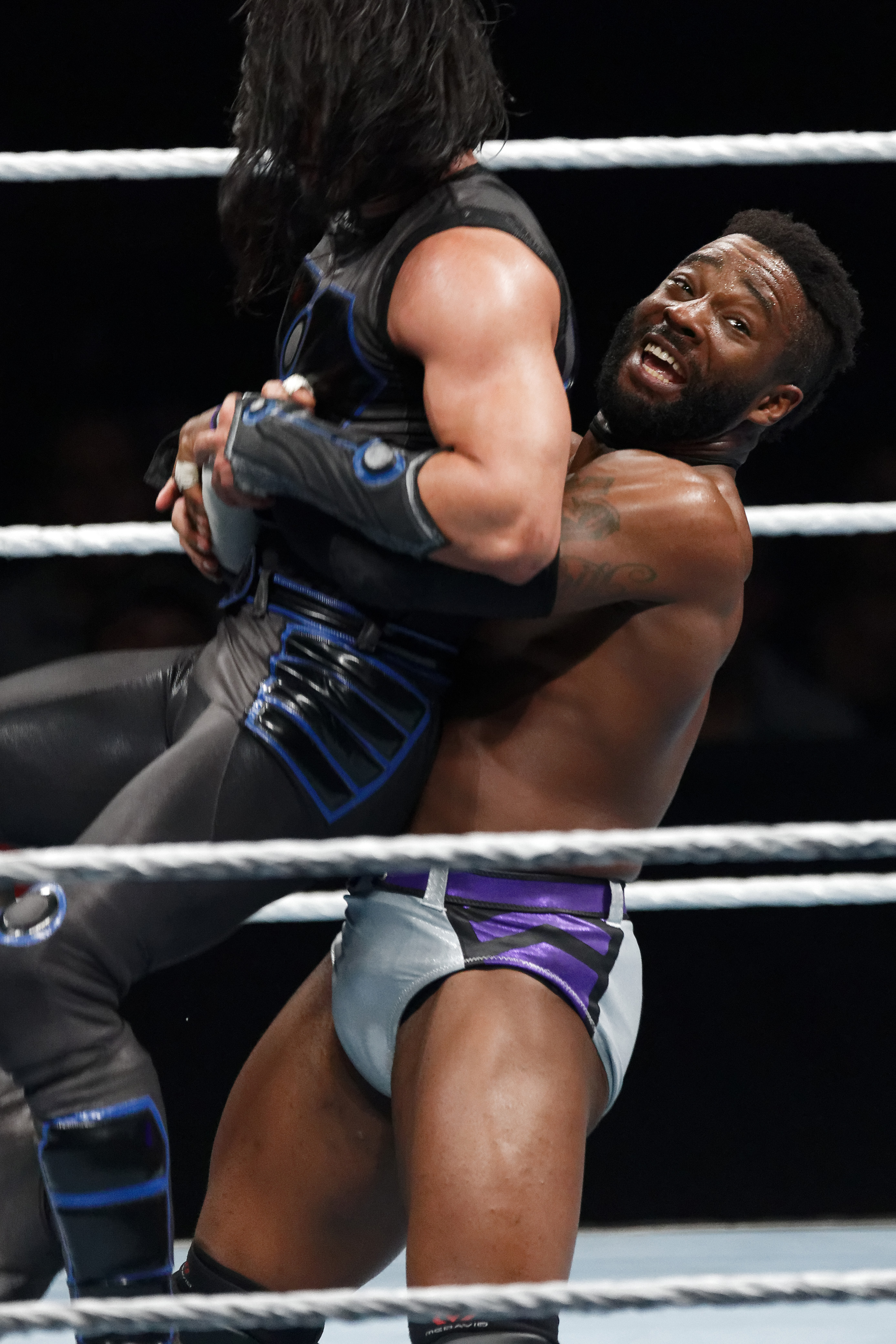
PARIS, FRANCE - MAY 19: Cedric Alexander (R) in action vs Mustafa Ali during WWE Live AccorHotels Arena Popb Paris Bercy on May 19, 2018 in Paris, France. (Photo by Sylvain Lefevre/Getty Images)
-
Mustafa Ali v Cedric Alexander
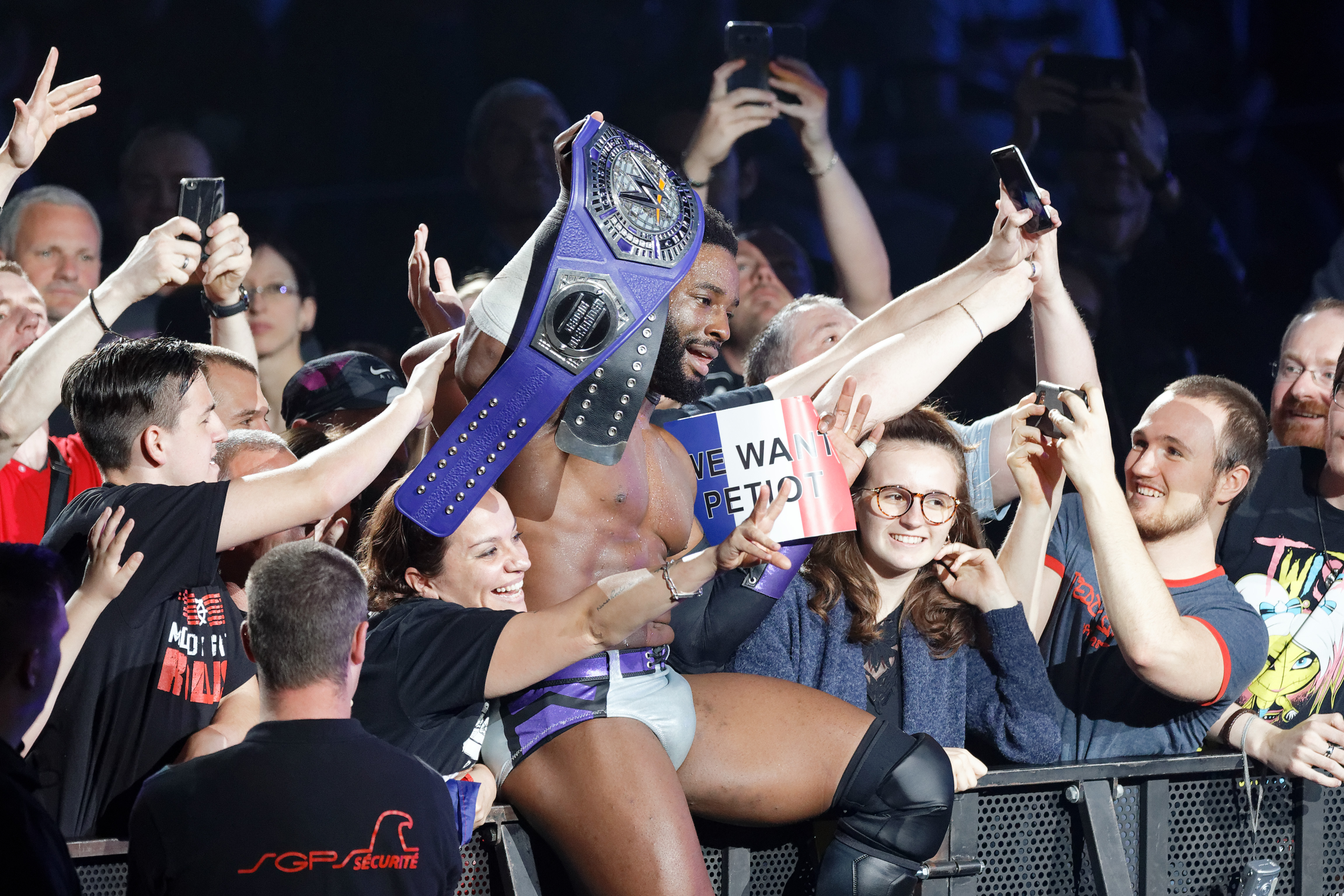
PARIS, FRANCE - MAY 19: Cedric Alexander attends WWE Live AccorHotels Arena Popb Paris Bercy on May 19, 2018 in Paris, France. (Photo by Sylvain Lefevre/Getty Images)
-
Mustafa Ali v Cedric Alexander
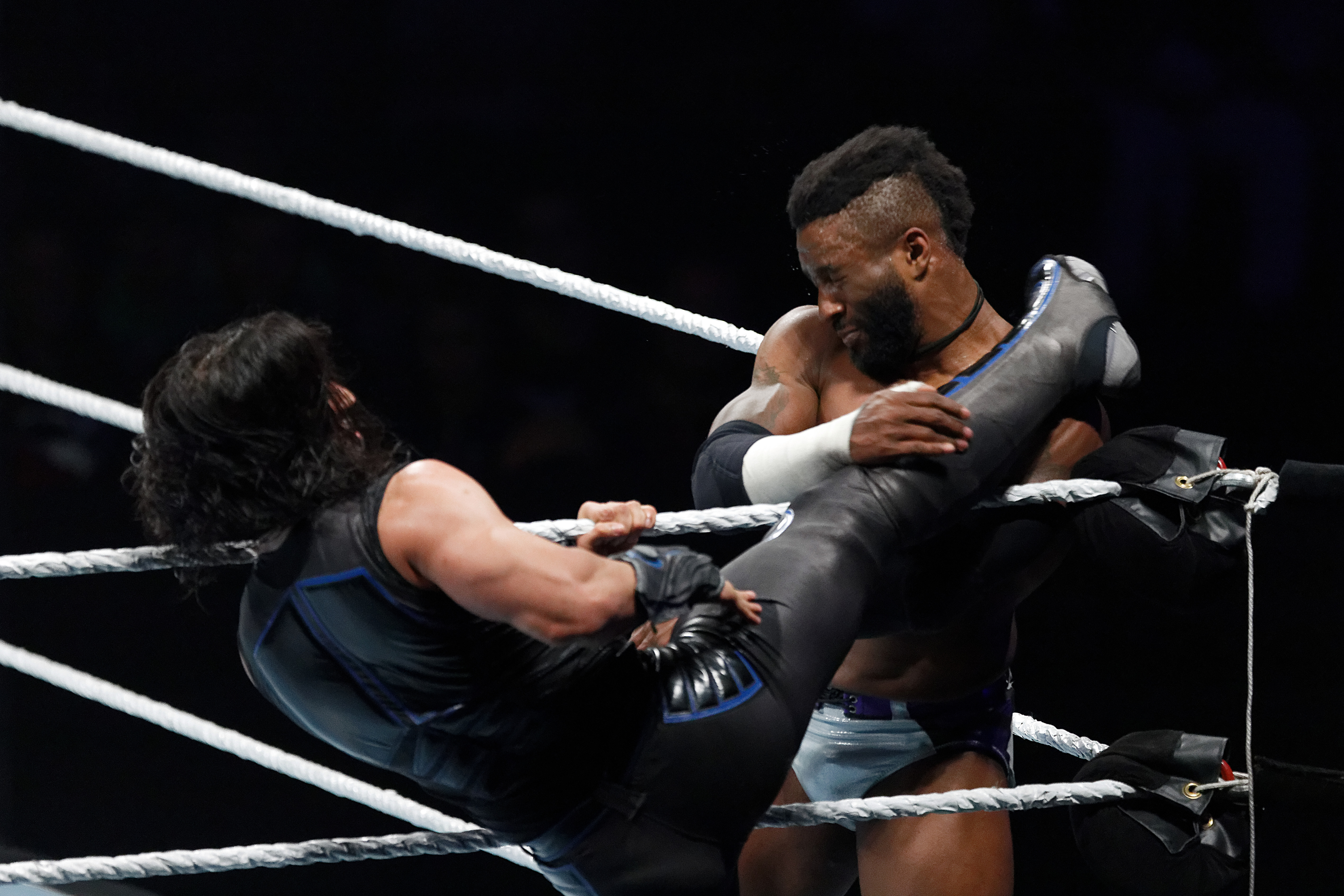
PARIS, FRANCE - MAY 19: Cedric Alexander (R) in action vs Mustafa Ali during WWE Live AccorHotels Arena Popb Paris Bercy on May 19, 2018 in Paris, France. (Photo by Sylvain Lefevre/Getty Images)
-
Mustafa Ali v Cedric Alexander
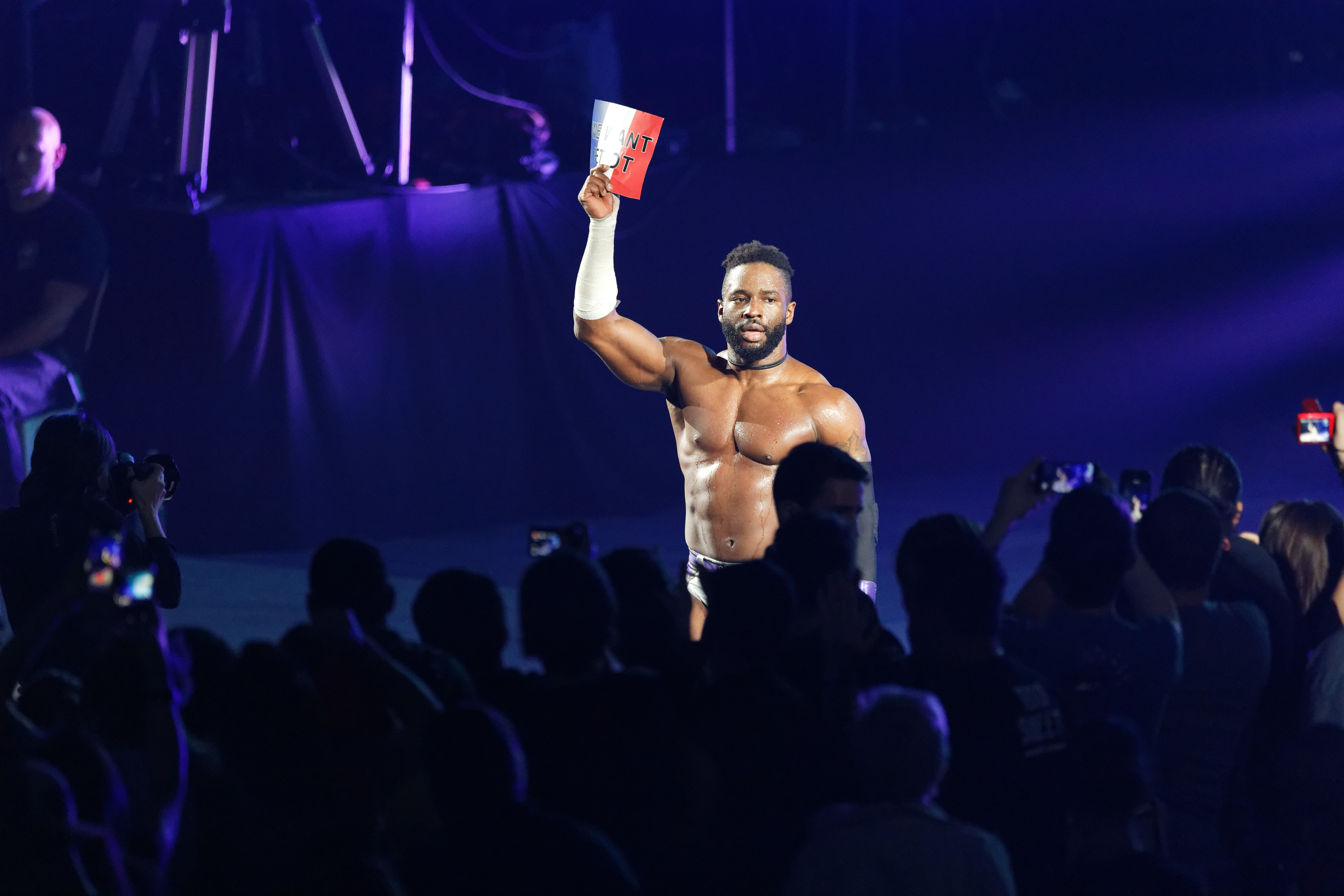
PARIS, FRANCE - MAY 19: Cedric Alexander attends WWE Live AccorHotels Arena Popb Paris Bercy on May 19, 2018 in Paris, France. (Photo by Sylvain Lefevre/Getty Images)
-
Mustafa Ali v Cedric Alexander
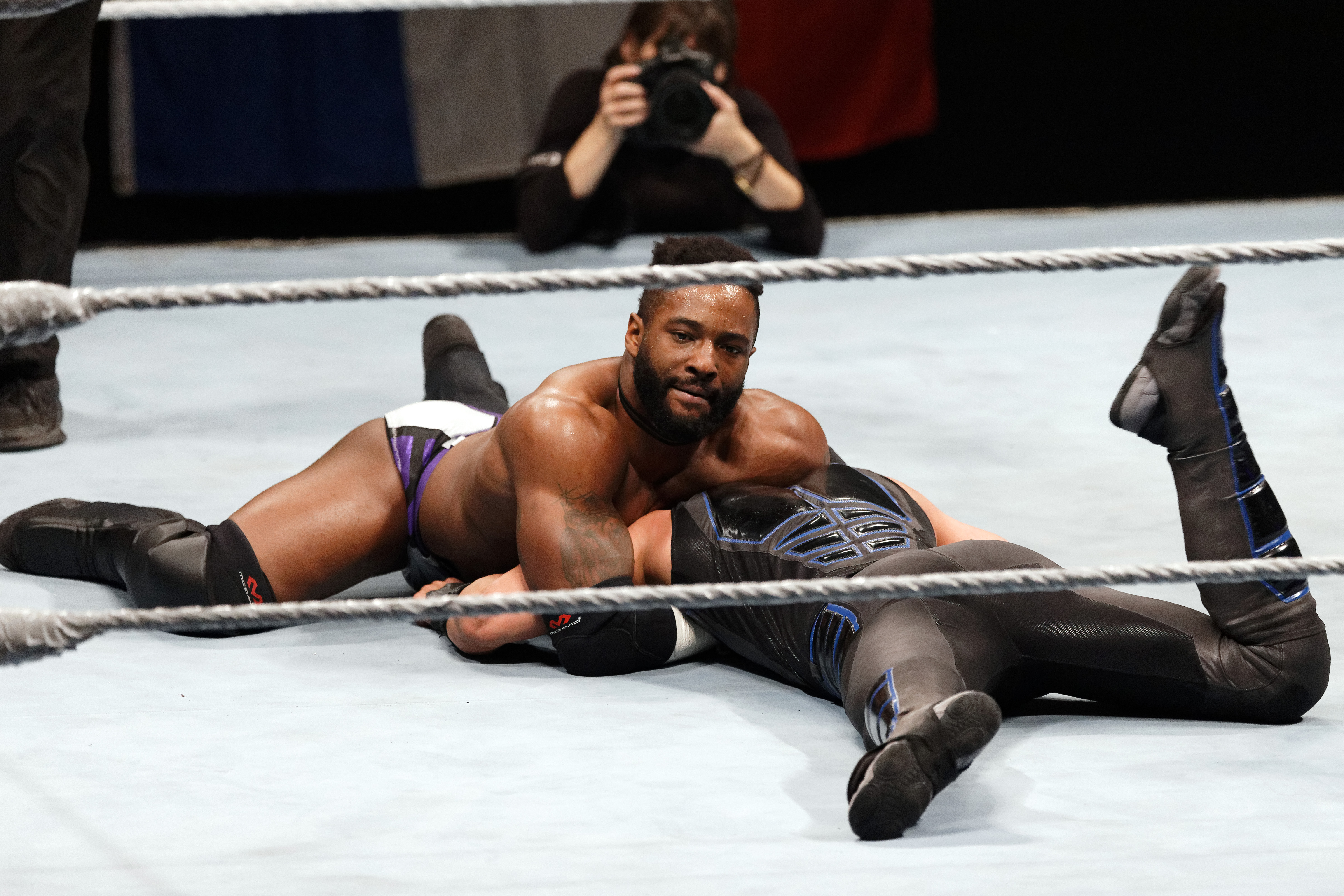
PARIS, FRANCE - MAY 19: Cedric Alexander (L) in action vs Mustafa Ali during WWE Live AccorHotels Arena Popb Paris Bercy on May 19, 2018 in Paris, France. (Photo by Sylvain Lefevre/Getty Images)
-
Mustafa Ali v Cedric Alexander
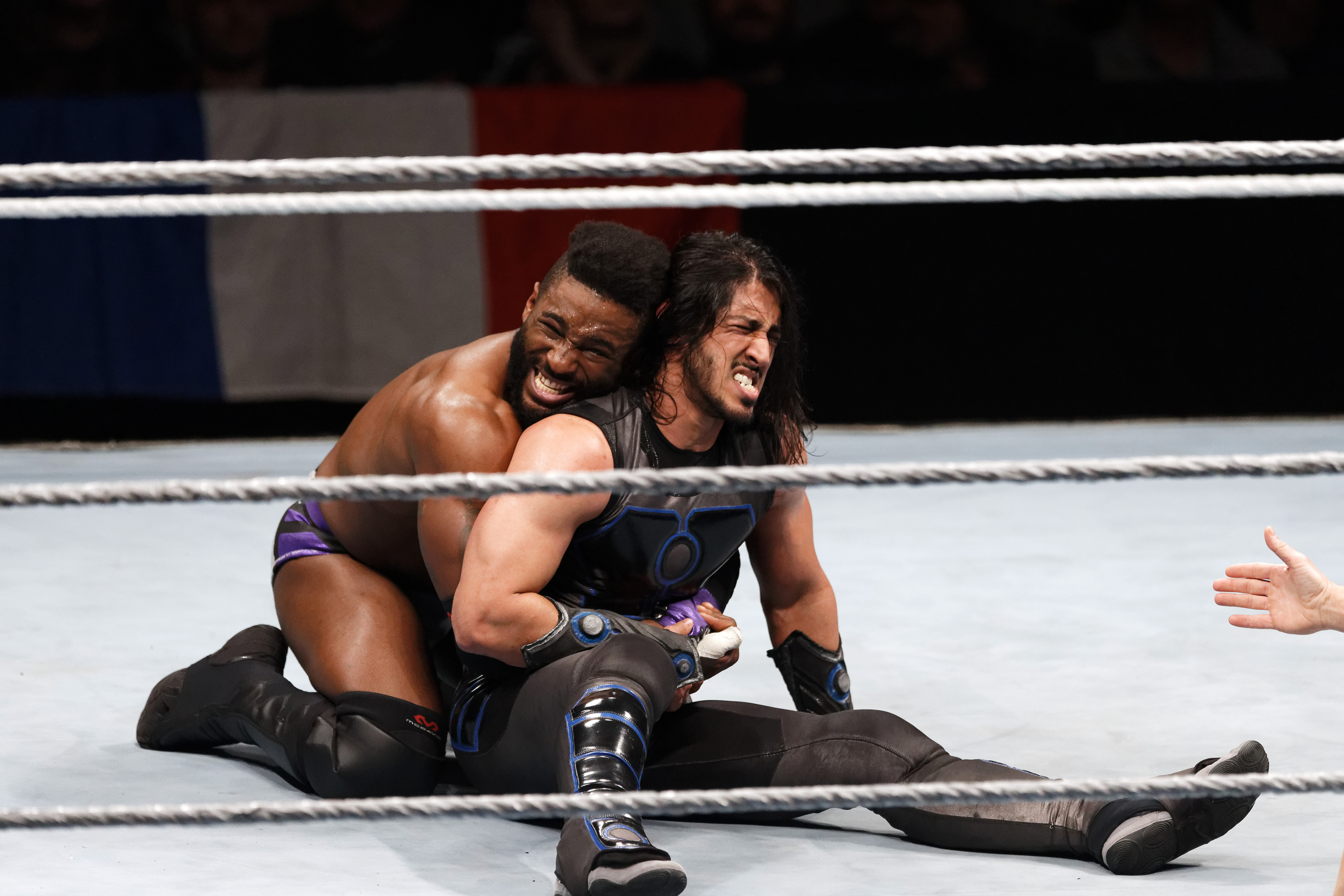
PARIS, FRANCE - MAY 19: Cedric Alexander (L) in action vs Mustafa Ali during WWE Live AccorHotels Arena Popb Paris Bercy on May 19, 2018 in Paris, France. (Photo by Sylvain Lefevre/Getty Images)
-
Mustafa Ali v Cedric Alexander
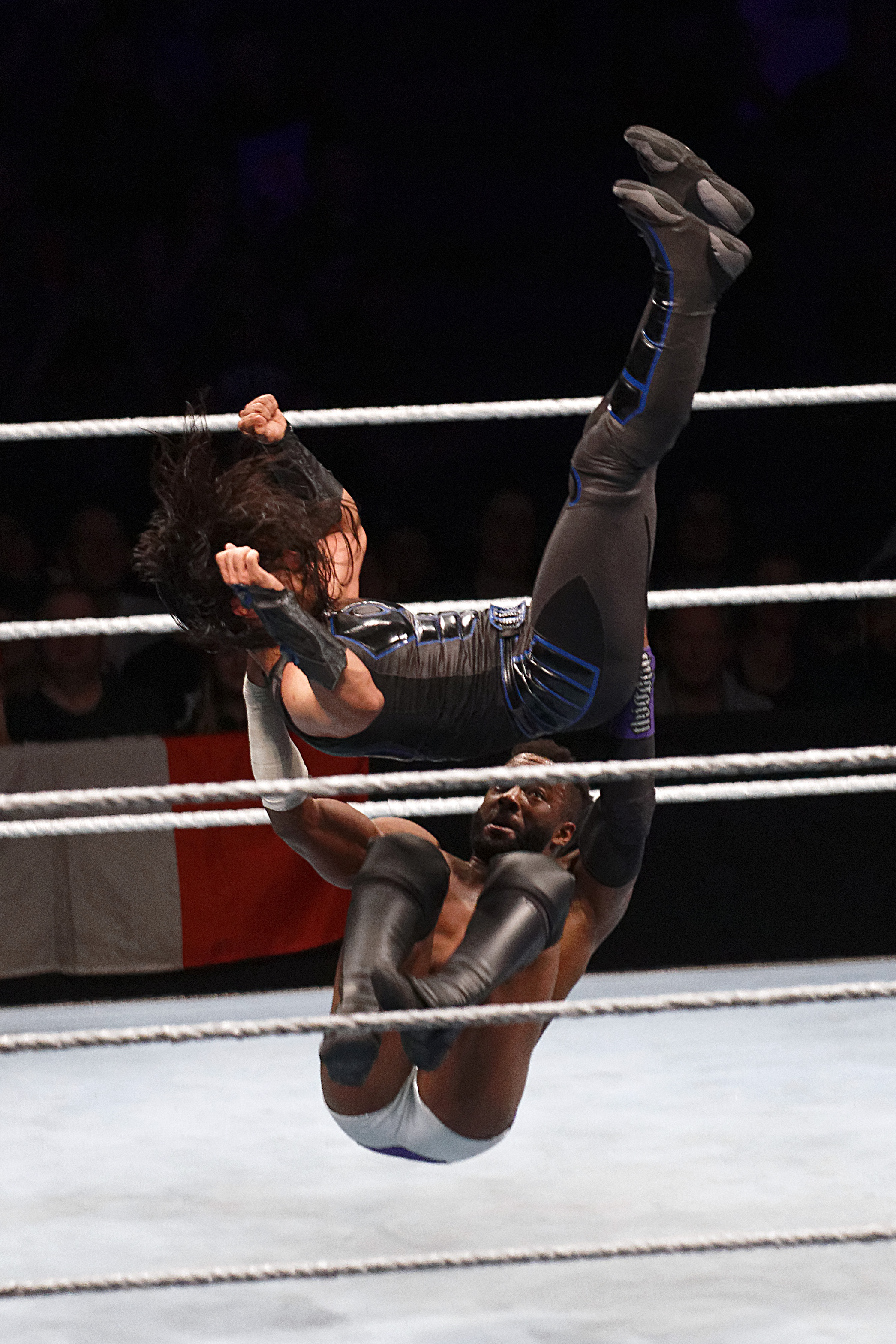
PARIS, FRANCE - MAY 19: Cedric Alexander (under) in action vs Mustafa Ali during WWE Live AccorHotels Arena Popb Paris Bercy on May 19, 2018 in Paris, France. (Photo by Sylvain Lefevre/Getty Images)
-
Mustafa Ali v Cedric Alexander
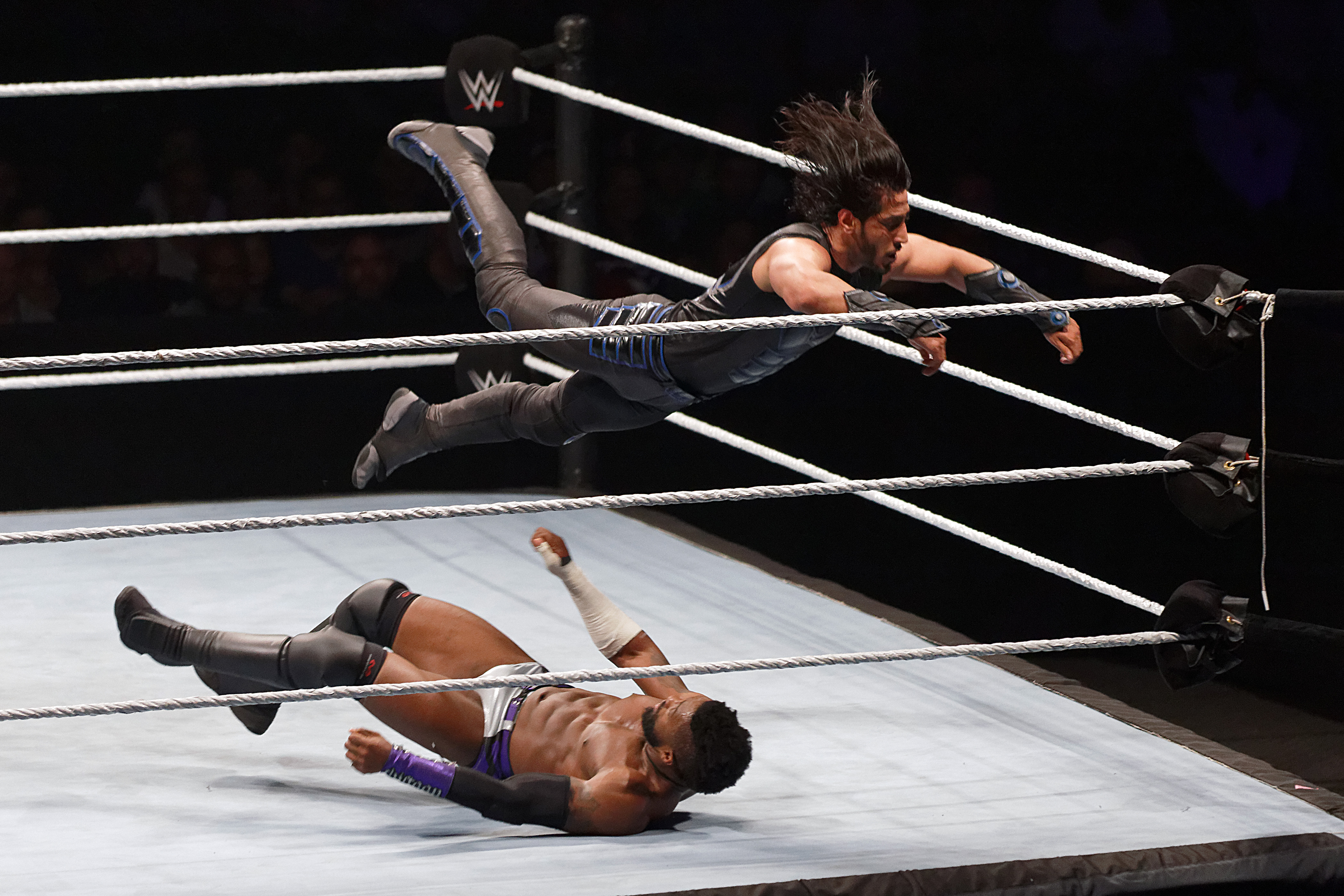
PARIS, FRANCE - MAY 19: Cedric Alexander (under) in action vs Mustafa Ali during WWE Live AccorHotels Arena Popb Paris Bercy on May 19, 2018 in Paris, France. (Photo by Sylvain Lefevre/Getty Images)
